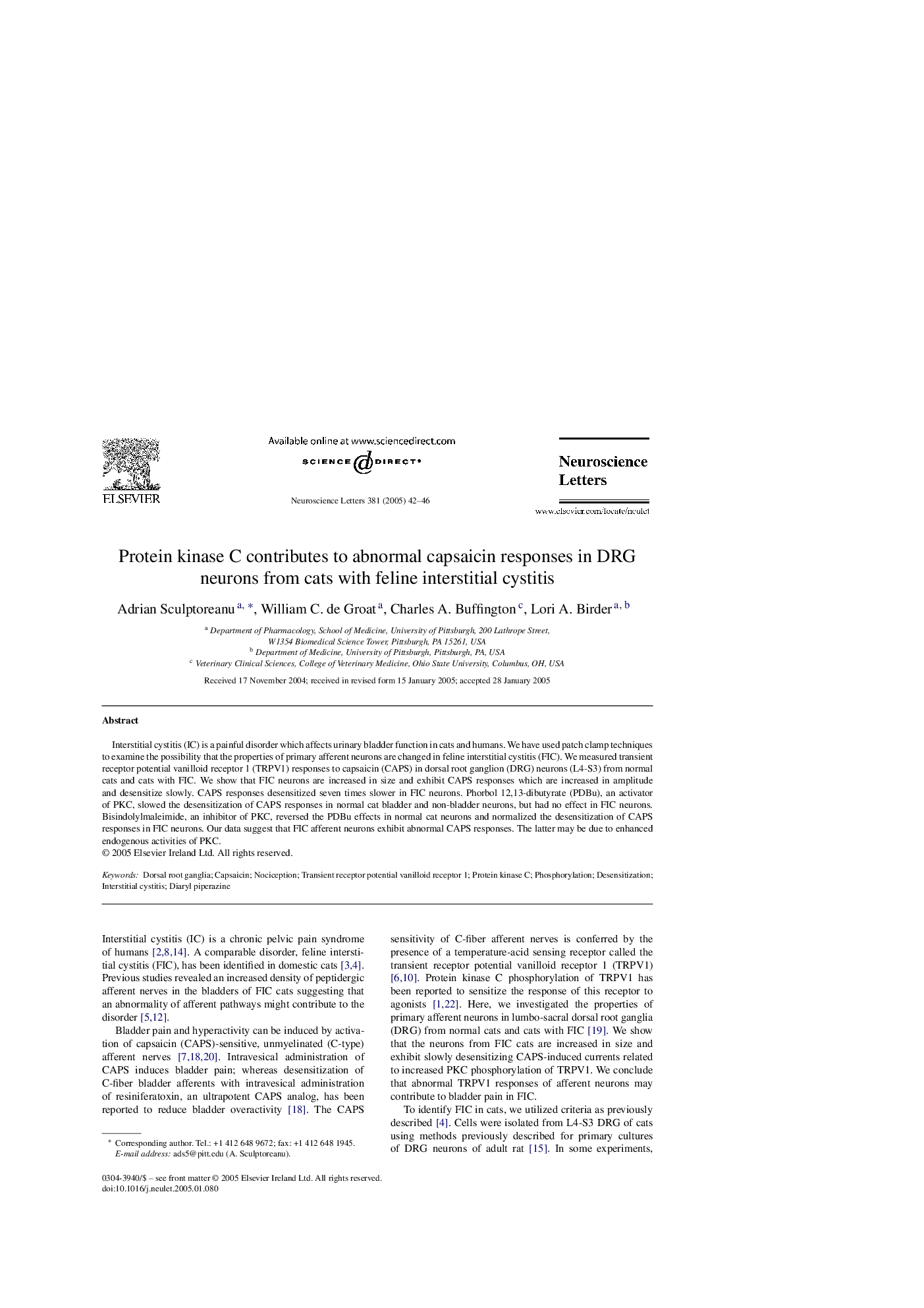| Article ID | Journal | Published Year | Pages | File Type |
|---|---|---|---|---|
| 9429671 | Neuroscience Letters | 2005 | 5 Pages |
Abstract
Interstitial cystitis (IC) is a painful disorder which affects urinary bladder function in cats and humans. We have used patch clamp techniques to examine the possibility that the properties of primary afferent neurons are changed in feline interstitial cystitis (FIC). We measured transient receptor potential vanilloid receptor 1 (TRPV1) responses to capsaicin (CAPS) in dorsal root ganglion (DRG) neurons (L4-S3) from normal cats and cats with FIC. We show that FIC neurons are increased in size and exhibit CAPS responses which are increased in amplitude and desensitize slowly. CAPS responses desensitized seven times slower in FIC neurons. Phorbol 12,13-dibutyrate (PDBu), an activator of PKC, slowed the desensitization of CAPS responses in normal cat bladder and non-bladder neurons, but had no effect in FIC neurons. Bisindolylmaleimide, an inhibitor of PKC, reversed the PDBu effects in normal cat neurons and normalized the desensitization of CAPS responses in FIC neurons. Our data suggest that FIC afferent neurons exhibit abnormal CAPS responses. The latter may be due to enhanced endogenous activities of PKC.
Keywords
Related Topics
Life Sciences
Neuroscience
Neuroscience (General)
Authors
Adrian Sculptoreanu, William C. de Groat, Charles A. Buffington, Lori A. Birder,
